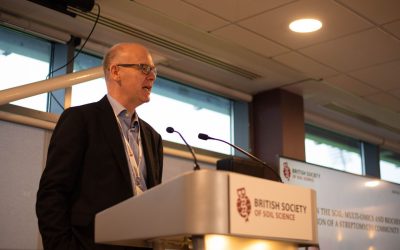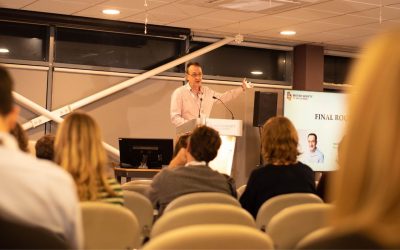We’re into the second week of COP26, with a focus on two key areas on Tuesday – gender and innovation. I think it’s fair to say that some delegates and speakers are flagging a little. Meetings displayed a mixture of enthusiasm, optimism, and open frustration, as press reports of the inadequacy of commitments prompted COP26 President Alok Sharma to say ‘that there has been some progress but clearly not enough’.
I was lucky to attend an impactful session on gender equality chaired by First Minister Nicola Sturgeon, joined by feminist leaders and activists, a 3.5 m tall puppet called Little Amal, and high-profile political figures including Nancy Pelosi, Speaker of the US House of Representatives, who pleased the audience by saying that ‘America is back – together for the planet, for our children’. A message later echoed by US representative Alexandria Ocasio-Cortez, who began her speech by declaring that the US ‘is back’, with a ‘fundamentally different’ approach to that of the Trump administration. Speaker Nancy Pelosi described the climate crisis an as existential threat and highlighted how indigenous people and women are on the frontline.
Climate change is sexist because women and girls are disproportionately impacted. They don’t have the same power, wealth or opportunity as men, make up the majority of the world’s poor, and are proportionally more dependent on threatened natural resources. Women’s voices are underrepresented in our response to climate change as they have negligible participation in decision making in many countries. Fatou Jeng, Founder of Clean Earth Gambia, highlighted stark figures published recently by the Malala Foundation, who report that in 2021, climate change will cut short the education of 4 million women and girls, increasing to 4.5 million in 2025. This is because women are more affected by and do more to respond to extreme weather in order to secure household livelihoods and food.
Part of my role in Higher and Further Education is to undertake gap analyses, identifying where barriers to access, success and progression operate for different groups of people in the UK, design interventions to reduce these barriers and share learning with other institutions. Barriers to opportunity operate differently at different stages – white working-class men can struggle to access Higher Education and my classes are usually slightly biased towards women, which is not unusual. But, research shows that women are underrepresented internationally in soil science, with unequal access to decision making, leadership, and pay.
It’s important to remember that particularly in the Global South, women predominate in the world’s food production (50 to 80 % according to the Intergovernmental Panel on Climate Change), but own less than 10 % of the land. Sustainable soil management and soil science are central in our response to climate change. We will fail if we don’t consider the traditional ecological and agricultural knowledge possessed by women and we must value and further develop this knowledge by protecting and improving women’s access to education.
As Quechua activist Tarcila Rivera Zea said on Tuesday – ‘women are not pleading to be supported, they are demanding to be empowered’.
The views expressed in this blog do not necessarily reflect the views of the British Society of Soil Science.





